Challenges Accepted: AI Potentials for Business Events
Review of the ebx.lab Premiere
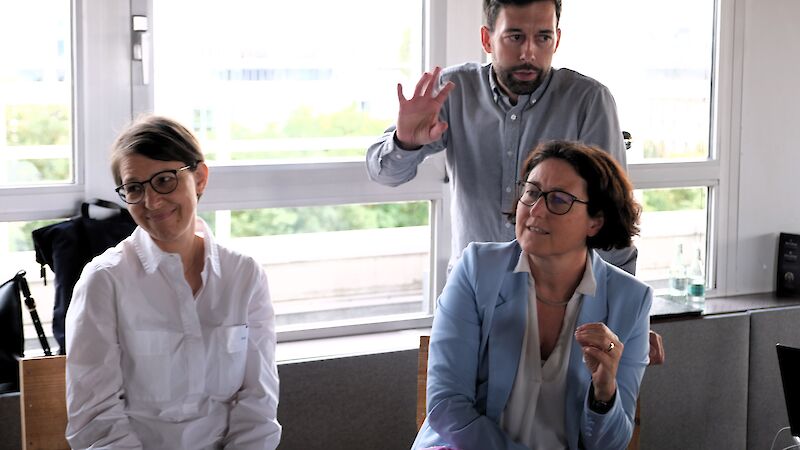 © GCB / Franziska Dörsching
© GCB / Franziska Dörsching
How can strategic pain points in the event cycle be addressed using Artificial Intelligence? This question was at the center of the new GCB event, "ebx.lab - The Strategic Innovation Workshop for New Events, Brands, and Experiences," which recently made its debut in Frankfurt, Germany.
Over the course of two days, approximately 30 participants formed five teams to delve deeply into identifying concrete AI applications that could enrich the world of business events in the future. The topics for discussion had been identified and prioritized by the participants themselves during a digital meetup prior to the event.
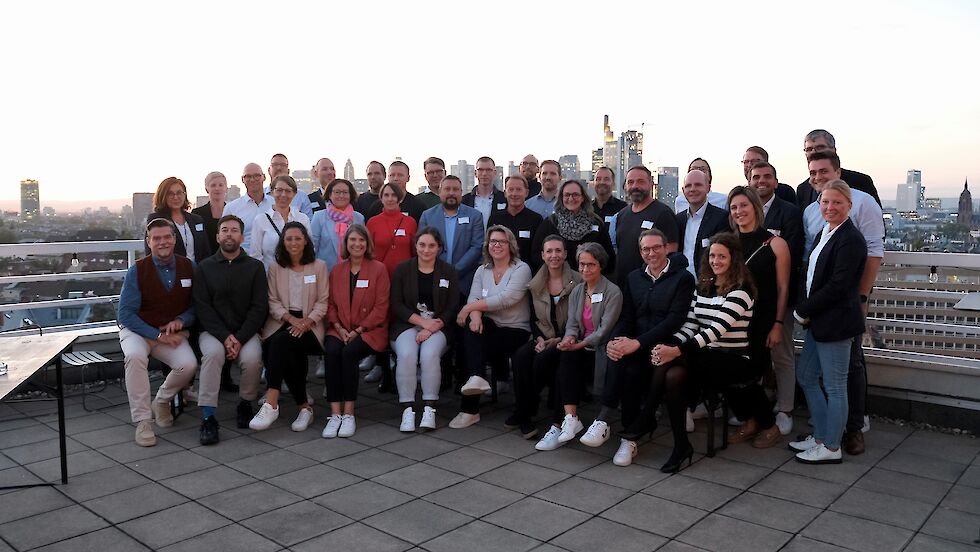 © GCB / Franziska Dörsching
© GCB / Franziska Dörsching
The community of the ebx.lab's first edition 2023
Business Events are on the cusp of a significant leap in development. Driven primarily by new technologies, we are currently witnessing a transformation of processes and the rapid advancement of tools for strategically aligning, planning, and executing business events. In this context, ebx.lab is designed as a transformative platform for strategic exchange on process innovations for business events and brand experiences.
The focus of the inaugural edition in 2023 is solutions in the field of Artificial Intelligence. This format, initiated by the GCB in collaboration with Fraunhofer IAO, is explicitly aimed at decision-makers in marketing, communication, and event departments of leading companies and associations. This group is complemented by strategic specialists and leaders from the service side of business events, including destinations, agencies, event venues, and hotels.
"Roll Up Your Sleeves" to Work on Solutions
The ebx.lab 2023 had started with a digital meetup in September, where the approximately 30 participants got to know each other online and, following a presentation by Dr.-Ing. Maximilien Kintz (Fraunhofer IAO), collaboratively developed topics for further discussion. Building on this foundation, the group launched into an intensive working phase during the in-person event on October 5th and 6th in Frankfurt.
The on-site ebx.lab began with an insightful keynote by AI expert Dr. Tina Klüwer (K.I.E.Z. Berlin), who explored the potential of AI for the event industry and its impact on the future workplace.
Under the guidance of facilitator Felix Rundel (Future Hain), the ebx.lab community then delved deep into the realm of AI. Five workshop groups, named after well-known AIs from pop culture, each selected a specific challenge along the event cycle – before, during, and after an event – to gradually approach a potential solution to this pain point through an open creative process.
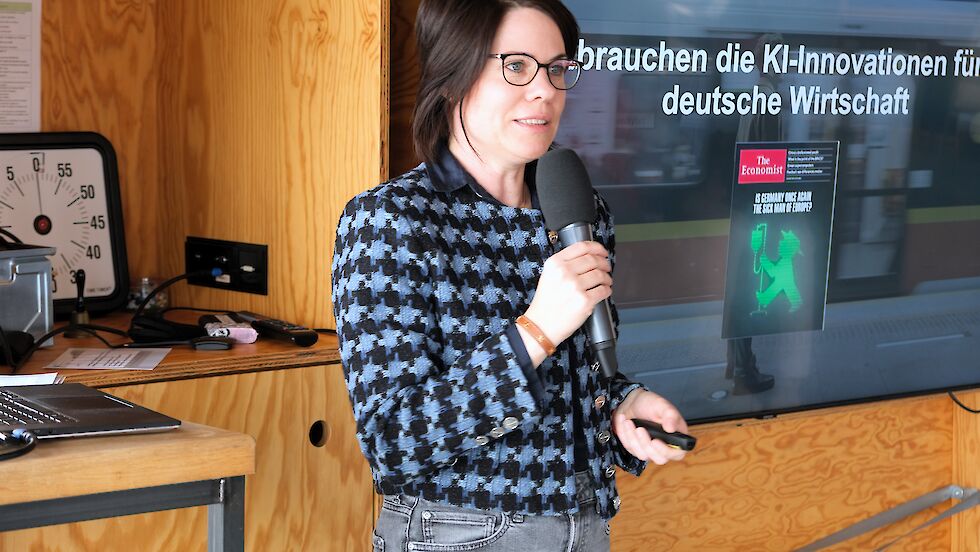 © GCB / Franziska Dörsching
© GCB / Franziska Dörsching
AI impulse by Dr. Tina Klüwer
Consistent Focus: Participant Experience
In terms of content, the working groups addressed a wide range of topics, from participant acquisition and target audience analysis and segmentation to customized program design and participant engagement during an event, as well as post-event and real-time event evaluation. Additionally, they discussed the ability to systematically predict the participation of specific target groups using AI.
Each team, guided by two moderators, delved as deeply as possible into their use cases. They explored long-term goals, added value for specific user groups, specific functionalities or required data sources, as well as cost-benefit analyses and potential blind spots or challenges that could arise on the path to actual application.
Despite the diverse and highly creative processes at ebx.lab, one core element united all groups: the strategic AI-driven event planning will place even greater emphasis on the experience of event participants – before, during, and after an event. According to the ebx.lab community, AI could offer significant potential to shape the most optimal customer journey.
The Work Process Continues
With two intense working days, the dedicated participants of the ebx.lab have laid an excellent foundation for further elaborating the AI solution approaches. The five identified use cases and prototypes will now undergo scientific evaluation by Fraunhofer IAO and will be discussed with the ebx.lab community at the upcoming digital meetup. The results will also be published in a whitepaper soon.
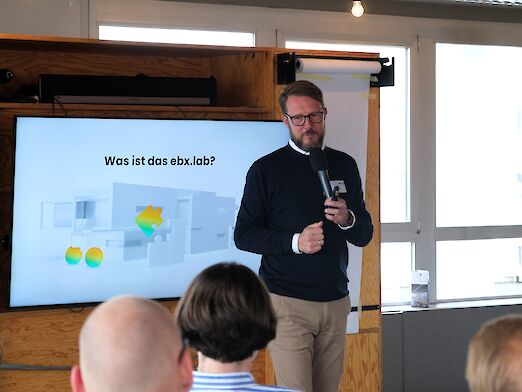 ©
©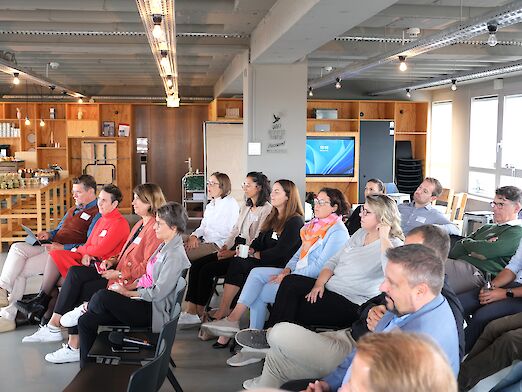 ©
©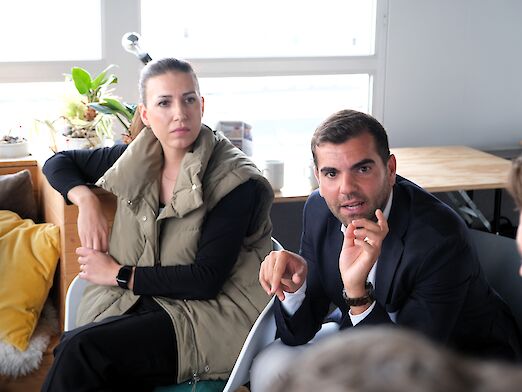 ©
©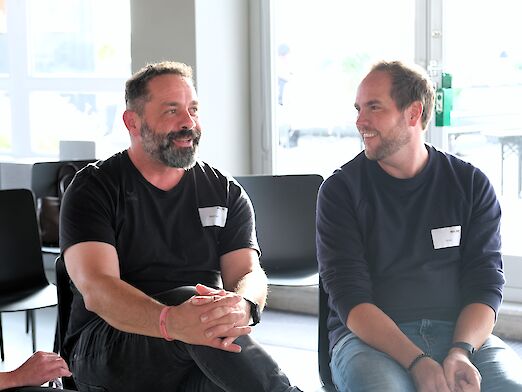 ©
©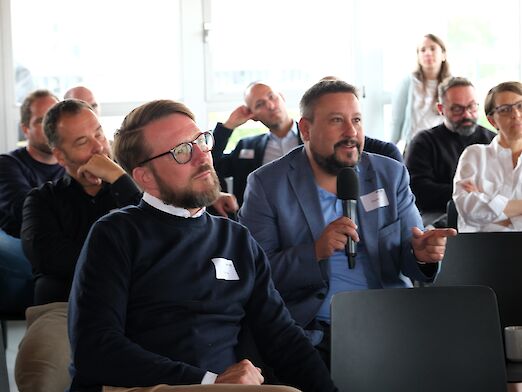 ©
©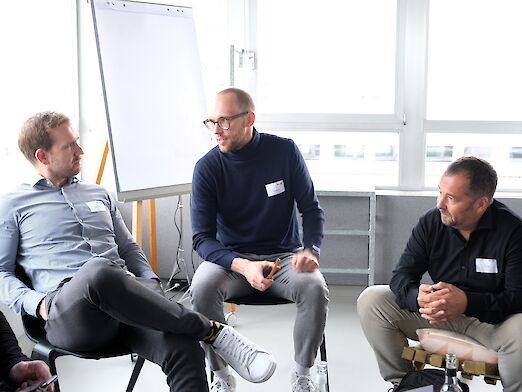 ©
© ©
© ©
©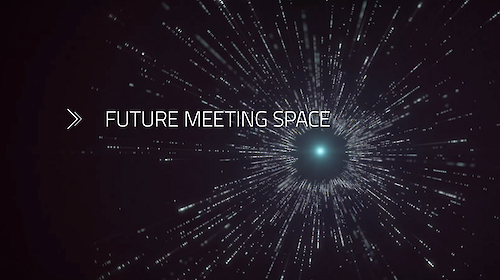 ©
©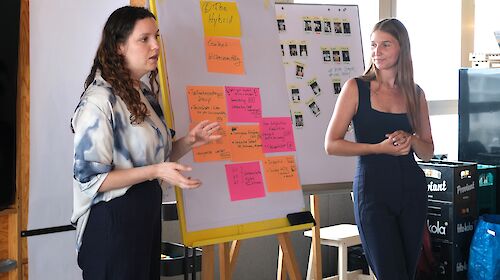 ©
©